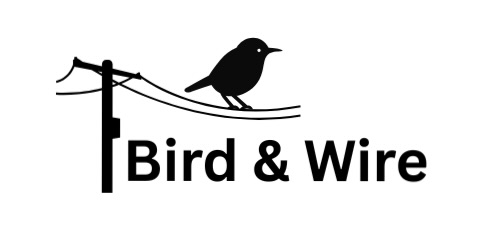As the planet slips into Trumphesim, and I put on my jacket to head out for a coffee, a thought pesters me. Its that kind of perstering you get from a slow, fat fly.
It’s not one of those thoughts that comes in the night and is gone by morning. This one lingers like baited breath. The kind that requires an exploration by a Brazilian dental hygienist.
A decision has to be made. Actually, I’m not even sure if the decision is entirely mine to make, but if the time comes — what will I do? Should i buy an oragami kit and learn to untangle these thoughts through distraction.
I’ve always been a bit of a “train on a track” kind of guy. You know, go with the flow, end up at a destination you never meant to arrive at. The journey can be a wild ride, addictive at times, yet the destination often leads to a come down followed by severe withdrawal until I launch myself into the same pattern expecting a different outcome. To quote a once wayward friend – oh the joy.
I’ve got a few monkeys on my back — some cling tighter than others — but most of the time, I carry good things. The odd crate of sushimi quality tuna, and a guitar for good measure.
Now, I’m not going to tell you what the decision is that I am mulling over. That’s a secret.
But I am going to tell you about my coffee.
It’s a long black. Beans from Honduras (sounds like the name of a well-hung porn star).
I don’t know much about Honduras, except that it’s one of those places where coffee is grown.
And like a lot of us, I don’t usually think much about the stuff I consume. I just buy, drink, toss, move on.
But things have changed. Well, at least they have changed for me.
The United States — one of the wealthiest countries in the world — has decided it’s time to punish almost everyone else with tariffs.
Why? Because it feels hard done by. Because, apparently, being rich isn’t enough anymore.
Take Vietnam — people working long hours for little pay, building lives and rebuilding from a war they never asked for.
And now? Now they’re being hit with a 46% tariff on their goods when they try to export to the U.S.
That’s nearly half their earnings gone — just like that. And Vietnam depends on exports to survive. Almost 30% of their export value last year came from the U.S. So this isn’t a political move. It’s a gut punch to some of the poorer nations so that America can get fatter. Sorry, this is greed – and Trump calls himself a Christian. He is as Christian as my ass is an ornament.
And then there’s Honduras. They’ve been caught in the same dragnet — a default 10% tariff slapped on their exports to the USA, possibly more depending on the product.
It’s not just unfair — it’s nasty and greedy.
Meanwhile, countries like Russia somehow dodge the penalties, like they’ve got some kind of VIP pass. You have to wonder — who’s really being protected here? Its a case of trumpeting and putin mates first.
But let’s come back to my coffee. The long black from Honduras.
Honduras isn’t just a name on a coffee bag. It’s a country where more than 100,000 families rely on growing those beans to survive.
Many are small farmers, working on tiny plots of land, battling changing weather, disease, and fluctuating markets. Coffee is their lifeline — their hope.
Now Honduras is a significant coffee exporter to the United States. In 2023, Honduras exported approximately 108,974,000 kilograms (about 108,974 metric tons) of unroasted, non-decaffeinated coffee to the U.S., valued at around $462.95 million USD. This made the U.S. the largest single importer of Honduran coffee, accounting for roughly 28.9% of Honduras’s total coffee exports during that period.
Narcostics however will not attract a tariff – estimates indicate that annually, between 150 and 300 tons of cocaine pass through Honduras en route to the U.S., with approximately 90% of this cocaine successfully reaching its destination.
Honduras coffee will now become more expensive in the USA, while concaine proberbly go down in price.
This might seem like a radical proposition, but as some farmers are pushed to the edge, they may turn to something far more lucrative: coca production. It’s not glamorous — but it pays. Unlike coffee, it doesn’t require international trade partners, certifications, or years of cultivation. Coca pays fast — and in countries with limited opportunity, speed matters more than ethics.
So paradoxically, while tariffs are meant to “protect” domestic markets or punish foreign governments, they actually:
- Make coffee more expensive for U.S. consumers
- Destroy livelihoods in countries like Honduras
- And ultimately, increase the flow of cocaine into the U.S. — which becomes cheaper as supply rises
It’s economic cause and effect. Push people out of legal work, and the black market will welcome them in.
The U.S. might be wealthy, and most Americans live relatively well compared to the rest of the world. But that kind of wealth should come with a responsibility.
And when a rich country starts punishing the poor for trying to survive, it tells you a lot about where its values lie.
It’s selfish. It’s short-sighted. And it’s something we can push back against — not with protests or politics (though those help too), but with awareness. With choice.
Okay, my coffee is finished. I am now going to buy that origami kit and ponder the pros and cons of Zen Buddhism and Chado.

